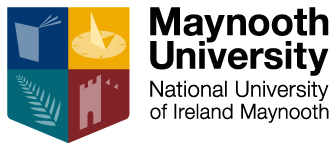Thesis with individual supervision: the option of jointly-supervised research with another Department from the Faculty of Arts, Celtic Studies and Philosophy or the Faculty of Social Sciences is also available. Please consult staff research for information about the research expertise of individual members of staff and areas in which supervision can be offered. Taught Modules: The student, in consultation with his/her supervisor, will devise a plan with a specified number of modules taken each year of the programme. Details available here.
PhD Programmes
The student, in consultation with his/her supervisor, will devise a plan with a specified number of modules taken each year of the programme. Students normally take any given module only once over the course of the PhD programme. The same piece of work can only be submitted and accredited once. Students are normally required to take a minimum of 15 credits of generic skills/transferrable skills modules (Details available here) over the first three years of the programme. Allowances will be made for specific circumstances such as prolonged periods spent abroad or equivalent.*
In addition, students are normally required to take one (but normally not more than one) of the ID84X modules (ID841, ID842 or ID843) during the first three years of their PhD programme. Students are encouraged to attend all ID84X modules and to pass at least one of ID841, ID842 or ID843 during the first three years of their PhD programme. ID81X modules are offered at irregular intervals, but at least every third year so that every student has the chance to take an ID81X module over the course of their programme; specific topics will vary (determined by the areas of research of a given cohort). Every student is normally required to take one ID81X module during the four years of their PhD programme.
Students are encouraged to take suitable modules, including Transferable Skills Modules, offered by cognate departments/schools within Maynooth University. Students also have the opportunity to take suitable modules from the taught MA in German, if they have not already done so.**
All students normally have to pass at least one Advanced Specialist module (GN85X, GN86X or GN87X) offered outside Maynooth University.
* Prolonged research periods abroad might offer the opportunity to take Advanced Specialist Modules at the host university. PhD students based at a foreign university will be advised by their supervisor to take relevant modules or attend relevant seminars, etc. Such modules will be awarded the ECTS value stipulated by the host university. Prolonged research periods abroad may also be considered as an Internship (SPA88X). The mark(s) achieved at the host university will be translated into the Maynooth University scheme of Pass (P), Distinction (D) or Did Not Complete (DNC) for all modules.
** The normal prerequisite for admission to the Structured PhD Programme in German is an MA or MLitt in German or equivalent. Students with an MA or MLitt in German or equivalent are required to take structured PhD modules to the value of 30 ECTS credits. Students admitted without holding an MA, MLitt or equivalent are required to take structured PhD modules to the value of 60 ECTS credits. Students, in consultation with Supervisor and Subject Leader/Head/Prof, may take extra modules beyond this requirement.
Campus venue: Maynooth University Campus
Duration: 4 years full-time, 6 years part-time
Duration: 4 years full-time, 6 years part-time
 Disclaimer
Disclaimer
The modules below are indicative of the content associated with this course of study.
The modules are subject to change as the curriculum is revised and reviewed annually. Please check periodically for updates.

|
Year 1
|
| |
Maynooth University is one of the main centres of research in German Studies in Ireland. The research profiles of staff members are very varied, covering all periods of German literature and including many aspects of German culture and history. The German Department offers research opportunities relating to all German-speaking countries and, uniquely, relating to theoretical and applied linguistics as well as the theory and practice of Teaching German as a Foreign Language. Other particular areas of research include travel writing, intercultural encounters, aesthetics, minorities, German-Jewish studies and postcolonial studies. Research topics from other areas need to be discussed with the prospective supervisor prior to application. Research Environment
The School of Modern Languages, Literatures and Cultures (SMLLC) runs friendly, informal research seminars and regularly invites guest lecturers to share their expertise with the Departments in the School. Members of the Department, including postgraduate students, participate in national and international conferences. The option of jointly-supervised research with another Department from the Faculty of Arts, Celtic Studies and Philosophy or the Faculty of Social Sciences is also available. Closing date
Research applications are generally accepted at any time. Commences
September (or other agreed time)
Notes: - All students should consult with their supervisor before registering for modules. This is especially important in the first year of your research studies as not all modules are suitable for Year 1 students.
- Modules with a FM or GST prefix are managed by the Research Development Office. Please consult with your supervisor before registering for these modules.
- Students who wish to register for FM and GST modules in semester 2 must contact the MU Research Skills Development Programme rsdp@mu.ie.
- UPDATE October 2023: new modules ML811 and ML812 now added to this subject. Students interested in registering for one or both of these modules in 2023-24 should contact the School of Modern Languages at E: smllc@mu.ie.
|
GN900
- GERMAN
|
Credits: n/a
Not compulsory: 
|
|
 GERMAN
GERMAN


